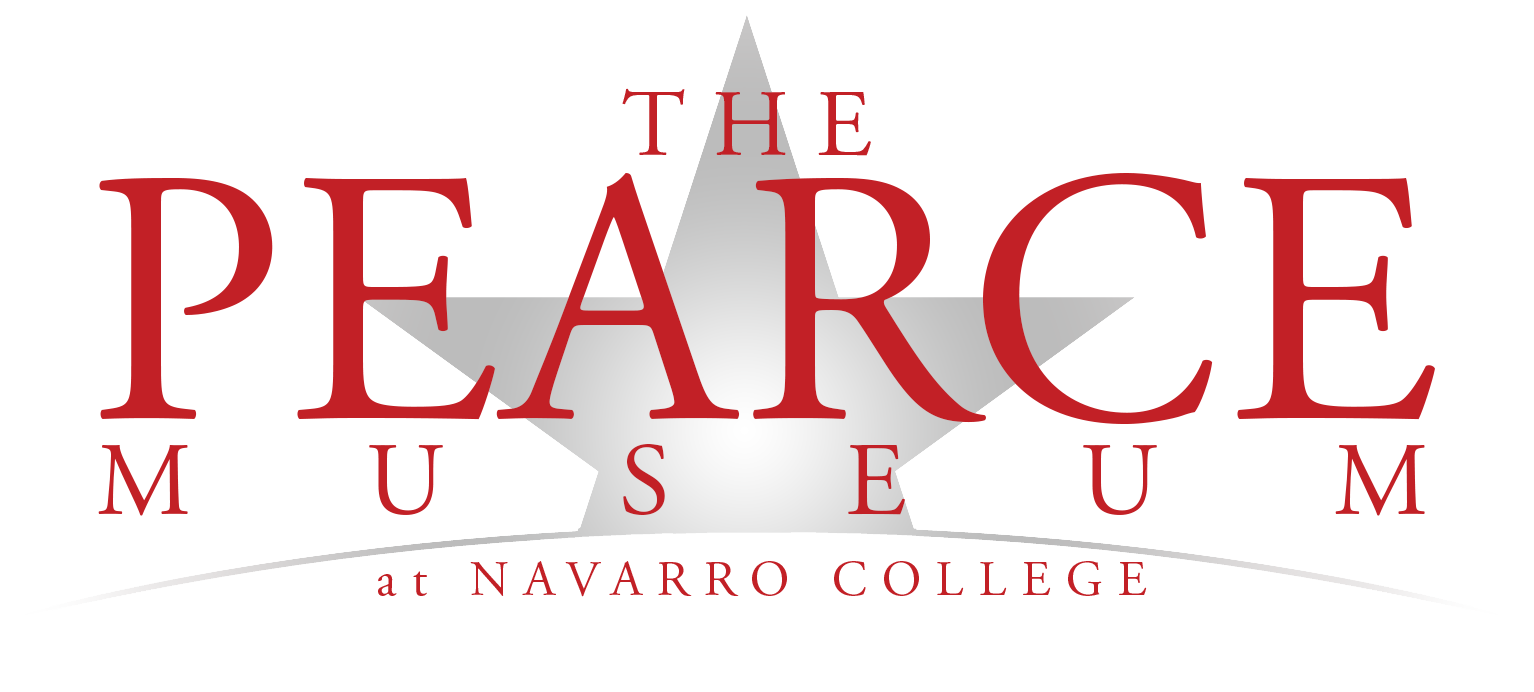Two Countries – Two Presidents
Early in 1861 eleven Southern states seceded from the Union to form the Confederate States of America. This move was brought about by many causes including slavery, state’s rights, taxes, economic issues and diminished political power. Abraham Lincoln was elected United States President and took office in March 1861. Jefferson Davis was elected President of the Confederate States on February 18, 1861. The two presidents governed the two countries throughout the four-years of the American Civil War until the surrender of the Confederacy in April 1865.
About Abraham Lincoln
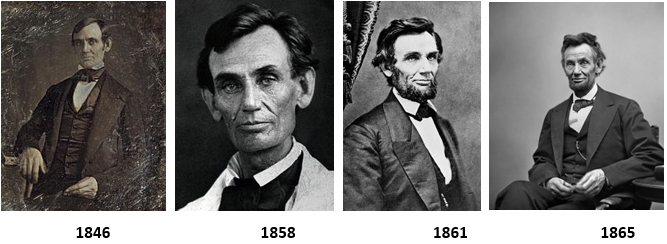
Abraham Lincoln was born on February 12, 1809 in Hodgeville, Kentucky to Thomas Lincoln and Nancy Hanks. In 1817 the family moved to Perry County, Indiana where his mother died when he was 9 years old. A few months later his father married Sarah Bush Johnson, who encouraged Abraham to read. His formal education came while he was growing into manhood. It is estimated that his form education was gained one day or one week at a time, totaling between 12 and 19 months. He tried his has as a shopkeeper, postmaster, and a general store owner without much success. He served in the state militia during the Black Hawk War of 1832 between the United States and Native Americans.
His political career began in 1834 when he was elected to the Illinois State Legislature. It was around this time he decided to become a lawyer. Lincoln trained himself by reading commentaries on English law. He served a single term in the United States House of Representatives from 1847 to 1849. In 1848 Lincoln challenged incumbent U.S. Senator Steven Douglas for his seat. It came down to a vote in the state legislature which went for Douglas. The exposure vaulted Lincoln into national politics.
In the 1860’s Republican National Convention, Lincoln surpassed better known candidates to win the nomination. The general election pitted Lincoln as the Republican candidate against Steven Douglas again, John C. Breckinridge of the Northern Democrats and John Bell of the Constitution Party. Lincoln won the election with less than 40 percent of the popular vote by receiving 180 of the 303 electoral votes. Before his inauguration in March 1861, seven states seceded from the Union. In April, Confederate troops laid siege to the U.S. military facility, Fort Sumter in the harbor of Charleston, South Carolina. On April 12, 1861, Southern guns opened fire on the fort signaling the start of America’s deadliest war.
President Lincoln led the Union throughout the war. He was assassinated 5 days after Confederate General Robert E. Lee surrendered by well-known actor and Confederate sympathizer John Wilkes Booth at Ford’s Theater in Washington D.C. Abraham Lincoln is buried in a special tomb in Springfield, Illinois.
About Jefferson Davis
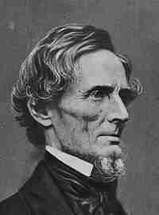
Jefferson Davis, President of the Confederates States of America
Jefferson Davis born June 3, 1808 in Christian Country, Kentucky. He attended a boarding school, Jefferson College, in Mississippi and Transylvania University in Kentucky. At the age of 16, President James Monroe nominated Davis for a place at the West Point Military Academy. In 1828, Davis graduate 23rd his class. He served as a second lieutenant in the First Infantry where he fought in the Black Hawk War of 1831. Chief Black Hawk was placed under Davis’ care after his capture, where he won over through his kind treatment while a prisoner.
In 1835, Davis married Sarah Knox Taylor, the daughter of his commanding officer, future president Zachary Taylor who opposed the marriage. Davis resigned from his military post to take up cotton farming. His wife died of malaria in September 1835. He became involved in politics, becoming a delegate at the 1843 Democratic National Convention. This exposure led to his election to the U.S. House of Representatives in December 1845. In June 1846 he resigned from Congress to lead the First Mississippi Rifleman Regiment in the Mexican-American War. He held the rank of colonel under his former father-in-law, General Zachary Taylor. He fought in the Battles of Monterrey and Buena Vista. He was injured in Buena Vista.
In 1847, Taylor appointed Davis as a U. S. Senator from Mississippi following the death of the incumbent. He served our the remaining term and won re-election. In 1853, Davis was appointed Secretary of War by President Franklin Pierce, serving four years before returning to the Senate. Although opposed the secession, he continued to defend the rights of the southern states. Davis served in the Senate until January 1861 when Mississippi left the Union.
On February 18, 1861, Davis was named President of the Confederate States of America. He led the southern states during the four years of the Civil War. His hope was that public opinion would support the independence of the Confederacy without having to defeat the Union. Davis’ military strategy was one of defense rather than offense. This strategy almost worked for the first two years of the war, until the South could not sustain the loses they were suffering in battle. Once they began to lose major battles, foreign countries were reluctant to lend support, especially due to the slavery issue.
Upon the surrender of General Robert E. Lee and the Army of Northern Virginia, Davis was forced to flee his capitol in Richmond, Virginia. He was captured by Union troops near Irwinville, George and charged with treason. He was imprisoned at Fort Monroe, Virginia until May 13, 1867 when he was released on bail, paid by abolitionist Horace Greeley. Davis was never tried on the charge of treason.
Davis was elected to the Senate from Mississippi for the third time but was unable to take his seat as he lost his citizenship, which was not restored until 1979 by special legislation, ninety years after his death. Jefferson Davis lived out his last years at an estate called Beauvoir, Mississippi. He died on December 8, 1889 of acute bronchitis in New Orleans, Louisiana. His body is in a specially constructed memorial at Hollywood Cemetery, in Richmond, Virginia.
DISCUSSION QUESTIONS:
Compare the childhoods and how the experiences shaped the personality of the two presidents.
Review the political opinions and why they were different.
What do you think the attitude of the citizens and soldiers were in the north and the south – and why?
Abraham Lincoln Letter
This transcription was copied from the original document and is representative of all spelling, punctuation, and grammar as written by the creator. The original document is housed in the Pearce Civil War Collection, Pearce Collections Museum, Navarro College, Corsicana, Texas. https://www.PearceMuseum.com
Executive Mansion,
Washington, February 24, 1863
Major Gen. Halleck
Dear Sir:
This morning the West Virginia delegation call and say the enemy contemplate invading & over-running them, in the early spring, and that, for this object among other things they are building a plank road from Stanton to Beverly – To meet this our friends are anxious, first, that the 7 Infantry, and the 1st Virginia Cavalry both now under Genl. Hooker, may be sent back to West Virginia – Their regiments are greatly reduced, our having not more than one hundred and sixteen men. Secondly, they desire that, if possible, a larger portion of them from in West Virginia, should be mounted in order to meet the increasing guerillism with which they are annoyed & threatened.
Can these things, or some of them, be done?
Yours truly
A. Lincoln
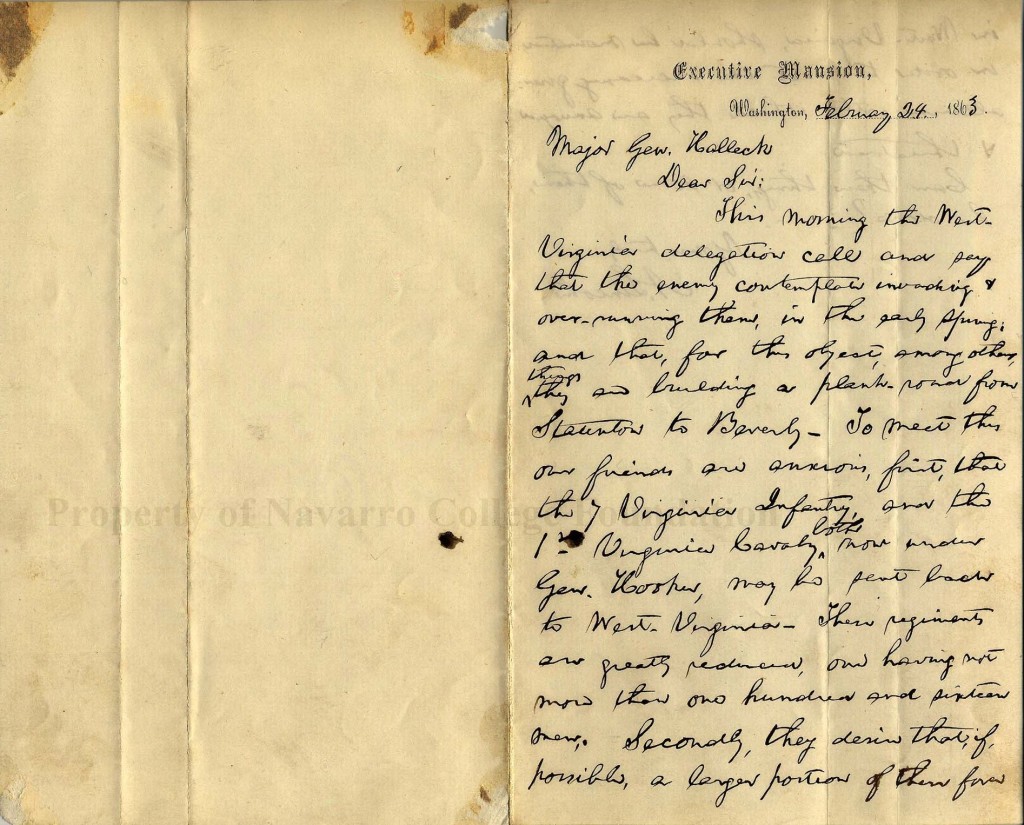
Lincoln Original Letter, pg 1
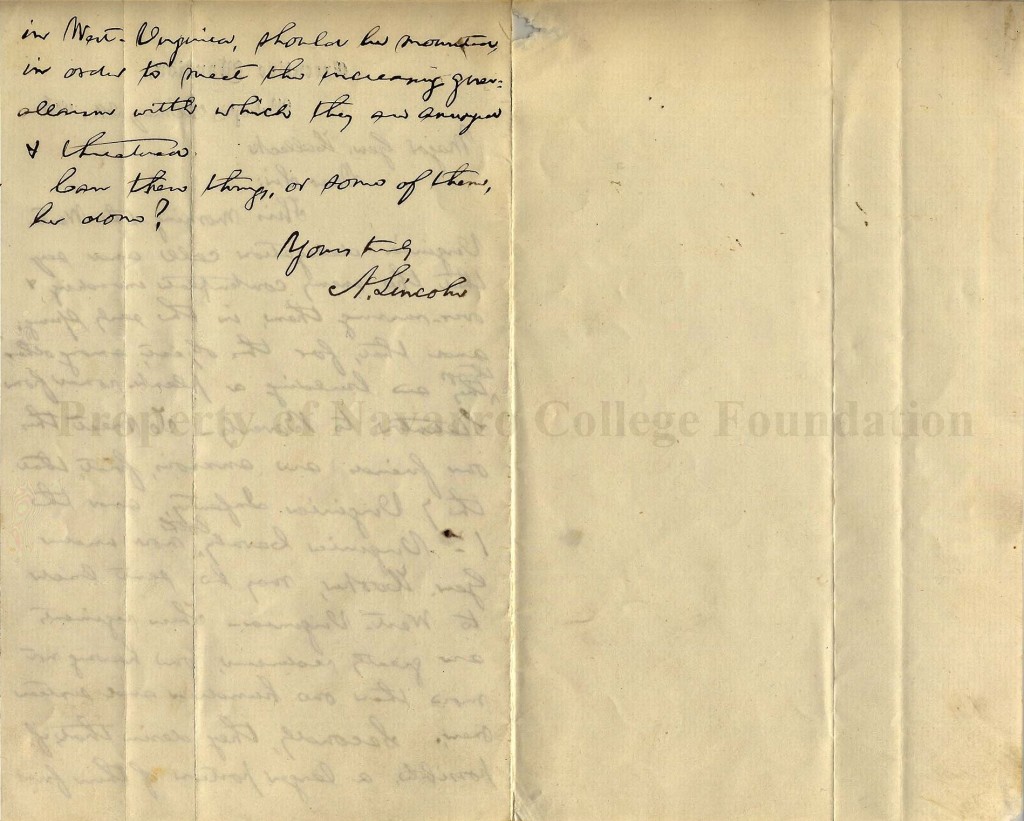
Lincoln Original Letter, pg 2
Jefferson Davis Letter
This transcription was copied from the original document and is representative of all spelling, punctuation, and grammar as written by the creator. The original document is housed in the Pearce Civil War Collection, Pearce Collections Museum, Navarro College, Corsicana, Texas. https://www.PearceMuseum.com
5 Aug. 1864
Genl. J. B. Hood
Atlanta, Ga
Your’s of Aug. 2nd received. I concur in your plan and hope your cavalry will be able to destroy the R.R. Bridges and Depots of the enemy on the line to Bridgeport so as to compel the enemy to attack you in position on to retreat. The loss consequent upon attacking him in his entrenchments requires you to avoid that if possible practicable.
The enemy has now reached a country where supplies can be gathered by foraging expeditions and a part of your cavalry will be required to prevent that. If he can be forced to retreat for want of supplies he will be in the worst condition to escape or resist your pursuing army.
Genl. Hardee’s minute knowledge of the country and his extensive acquaintance with the officers and men of the command must render his [?] professional knowledge & experience peculiarly valuable in such a campaign as I hope is before you.
JeffersDavis
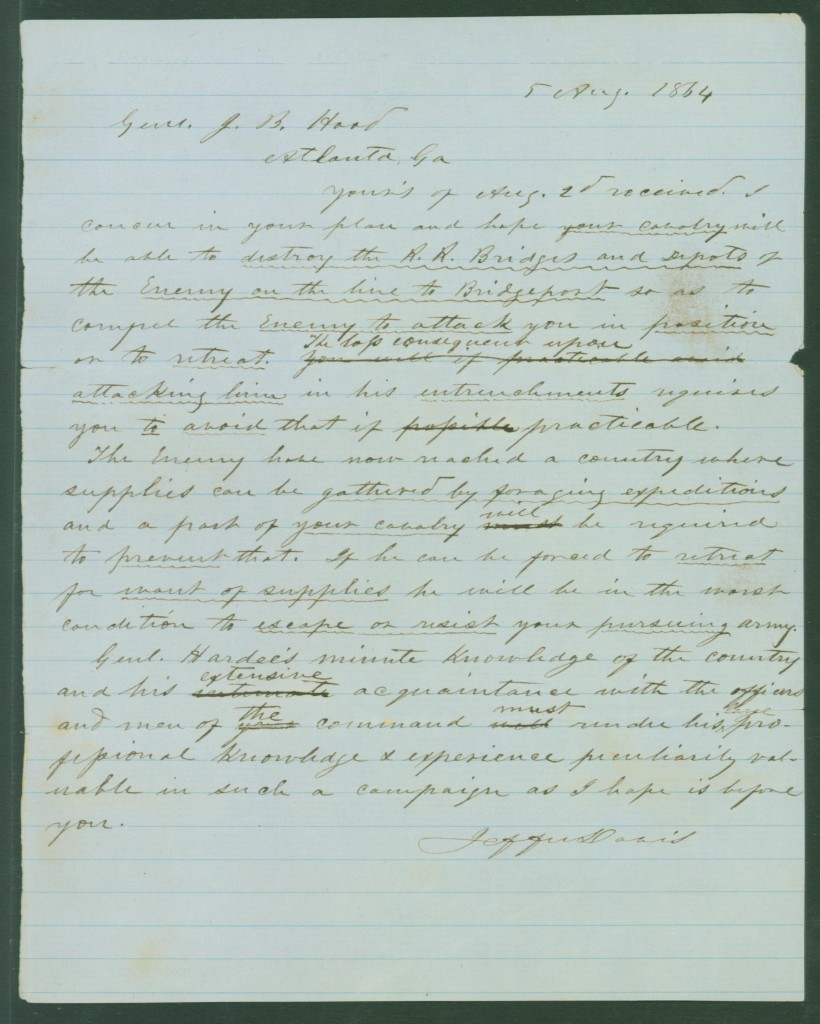
Jefferson Davis Original Letter
